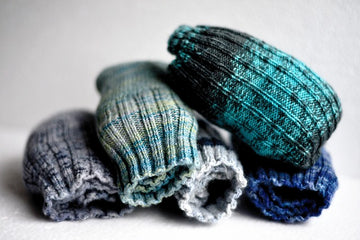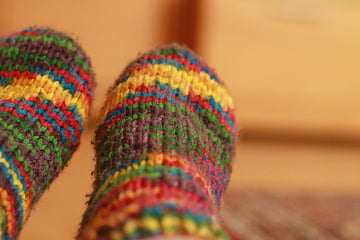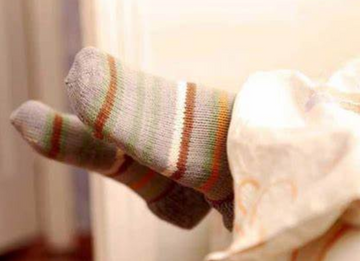
In winter, the choice of socks plays a crucial role in keeping your feet warm and comfortable. While traditional wool socks have long been a popular option, alpaca socks have emerged as a promising alternative. This article delves into the reasons why alpaca socks are generally warmer than wool socks, exploring their unique properties and advantages.
Are Alpaca Socks Warmer Than Wool?
Yes, alpaca socks are generally warmer than traditional wool socks. Alpaca fibers provide excellent insulation while being lighter and softer, making them a great choice for warmth and comfort.
How much warmer is alpaca than wool?
One of the most remarkable qualities of Alpaca fiber is its exceptional warmth. Unlike traditional wool, Alpaca fiber has a hollow-core structure. This unique structure allows Alpaca clothing to trap air, creating a natural insulating layer. As a result, Alpaca Socks can keep your feet significantly warmer than traditional wool socks. In fact, many people report that Alpaca Socks can keep their feet up to three times warmer.
Why Are Alpaca Socks Warmer Than Wool?
Hailing from the Andes Mountains, where temperatures can fluctuate dramatically, Peruvian Alpacas have evolved remarkable adaptations to survive in this challenging environment. Over millennia of enduring these harsh conditions, Alpaca fur has acquired several unique properties, setting it apart from other wools. Their fibers, for instance, have developed UV resistance to protect their skin from the intense solar radiation.
One of the key factors contributing to Alpaca socks' exceptional warmth is their hollow-core fiber structure. This unique structure traps air, creating a layer of insulation that helps to regulate body temperature. In contrast, wool fibers have a more solid structure, which allows for less air retention.
What are the advantages and disadvantages of alpaca wool?
Advantages
- Warmth: Alpaca wool is exceptionally warm due to its hollow-core fibers, which trap air and provide insulation.
- Temperature Regulation: It can regulate body temperature by both trapping heat and wicking away moisture.
- Moisture-Resistant: Alpaca wool is naturally hydrophobic, repelling moisture and keeping feet dry.
- Eco-Friendly: Alpaca farming is generally considered environmentally friendly with minimal harm to the animals or the environment.
- Hypoallergenic: It contains no lanolin, making it suitable for people with allergies or sensitive skin.
- Odor-Resistant: Alpaca wool's moisture-wicking properties help prevent odor-causing bacteria.
- Softness: Alpaca wool is incredibly soft and comfortable, even compared to other luxury fibers like merino wool and cashmere.
- Durability: Despite its lightweight nature, alpaca wool is relatively durable.
Disadvantages
- Cost: Alpaca wool can be more expensive than other types of wool due to its unique properties and limited supply.
- Availability: Alpaca wool products may be less widely available compared to more common fibers like cotton or sheep's wool.
- Care: Alpaca wool may require special care instructions, such as hand washing or using specific detergents, to maintain its quality and softness.
Are wool or alpaca socks better?
When comparing wool and alpaca socks, alpaca fiber's exceptional moisture-wicking properties make it less likely to harbor bacteria, which can cause odor. Wool, on the other hand, tends to retain more moisture, increasing the risk of unpleasant smells. Additionally, alpaca socks are generally softer and more lightweight, providing superior comfort without sacrificing warmth. While wool excels in durability, if odor control is your top priority, alpaca may be the ideal choice.
Is alpaca itchy like wool?
Alpaca fiber is renowned for its softness and hypoallergenic qualities, making it a comfortable choice for those with sensitive skin. Unlike wool, which has a rough, scaled surface that can irritate, alpaca fibers are smooth and gentle. This lack of irritation, coupled with its hypoallergenic nature, allows individuals with allergies to enjoy alpaca products without discomfort. If sensitivity is a concern, alpaca may be the ideal option.
How often should you wash alpaca socks?
Generally, you can wear alpaca socks for 2-3 days before washing them. If they start to smell or feel dirty, it's time for a wash. Alpaca socks can often be worn multiple times before needing a wash. Their natural properties help to resist odors and moisture.
- Activity level: If you're wearing them for strenuous activities, you might need to wash them more often.
- Weather: In humid or hot conditions, they might need more frequent washing.
- Personal preference: Some people prefer to wash their socks after each wear.
Are alpaca socks warmer than cashmere?
Yes, alpaca socks are typically warmer than cashmere socks. Alpaca fibers have a hollow structure that traps air, creating a natural insulation layer that effectively retains heat. While cashmere is renowned for its softness and warmth, it lacks the same air-trapping properties as alpaca.
Are alpaca socks good for summer?
Yes, alpaca socks can be great for summer! Their breathability and moisture-wicking properties help keep your feet dry and comfortable, even in warmer weather. The lightweight design of alpaca socks ensures they won't feel heavy or restrictive, making them suitable for various summer activities. Plus, their natural temperature-regulating abilities can help keep your feet cool, making them a versatile choice for both warm and cool days.
Is alpaca wool good for cold weather?
Alpaca wool is a superior choice for cold weather, offering exceptional warmth due to its hollow, air-trapping fibers. Its natural moisture-wicking and water-resistant properties ensure comfort in even the harshest conditions. The fabric's lightweight softness makes it ideal for layering, providing both warmth and comfort without bulk. Overall, alpaca wool is a fantastic choice for winter clothing, offering superior insulation and protection against the elements.
Is alpaca more expensive than wool?
Yes, alpaca fiber is generally more expensive than regular sheep wool. Its rarity, coupled with the labor-intensive shearing and processing, contributes to the higher price. Additionally, alpaca's eco-friendliness and high performance, including its softness, warmth, and moisture-wicking capabilities, make it a premium choice.
Is 100% alpaca good for socks?
While pure alpaca offers luxurious comfort, blends often provide added durability and stretch, making them a better fit for everyday wear. Look for blends that combine the benefits of alpaca with the strength of other fibers, like nylon or merino wool. This will give you socks that are not only comfy but also long-lasting and perfect for active lifestyles.
What animal has the warmest wool in the world?
When it comes to warmth, nothing beats musk ox qiviut and angora rabbit fibers. Qiviut offers unparalleled insulation, while angora's softness makes it ideal for lighter garments. Both are superior choices for staying cozy in frigid temperatures.
What is the warmest natural fiber?
Angora wool is the warmest natural fibers, offering remarkable heat retention—about two-and-a-half times warmer than sheep's wool. Its softness and lightweight nature make it highly desirable for cozy garments. However, while it's excellent for warmth, angora can be less durable, so it’s often blended with other fibers for added strength. Overall, for warmth, angora stands out among natural fibers!
Can Bacteria grow on alpaca wool?
Alpaca wool is known for its natural antimicrobial properties. The fatty acids in the fibers act as a barrier, preventing bacteria and other microorganisms from thriving. This makes alpaca items less likely to develop unpleasant odors, even after extended use.
Final Words
Alpaca socks offer a superior level of warmth and comfort compared to traditional wool socks. Their hollow-core fiber structure, moisture-wicking capabilities, and hypoallergenic qualities make them an excellent choice for individuals seeking both warmth and comfort.
Read More:
Why Do We Wear Socks
Do You Wear Socks with Climbing Shoes
What Color Socks with Brown Shoes
What Socks to Wear with Loafers
What are Grip Socks
What Socks to Wear with Cowboy Boots
Are Wool Socks Good for Summer
What Color Socks with White Shoes






